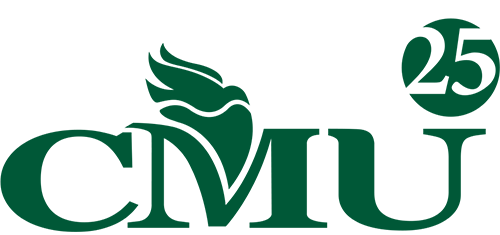What Will I Study?
Mathematics is in many ways the language of the sciences, and this is as in Biology, Chemistry, and in Physics. Statistics helps to make sense of patterns and variability in large data sets produced by biological research. Calculus, as the mathematics of change, is key to understanding any biological process – from bacterial growth, to the dynamics of a disease, to the changing populations in an ecosystem.
CMU strives to situate each of our programs interactively within a greater network of subjects, and Mathematics is no exception. In your mathematical studies at CMU you will be required to write, and engage actively in discussions about the relationships between Mathematics and various other disciplines. Our Math programs will prepare you to apply the concrete skills you acquire to a wide variety of problems in a host of different contexts.
Our programs features a variety of courses dealing with material ranging from the basic, to the advanced, to the truly niche. A few examples would include Basic Statistical Analysis, Chaos Theory—a senior level course offered every two years—and Discrete Mathematics, respectively.
CMU's Discrete Mathematics course, to elaborate, is offered with students in mind who need to take a Math course in order to go on to Education, but are not prepared for Intro Calculus. This unique class offers non-math students the opportunity to study pure math, conceptually, at a highly accessible level; it introduces them to various types of formal logic, number theory, questions of knowability (e.g. "What are the differences between mathematical concepts of truth and other concepts of truth, such as Biblical ones?") etc.
Some other Mathematics courses available at CMU include: Vector Geometry and Linear Algebra, Calculus, and Logic.



 Print This Page
Print This Page

